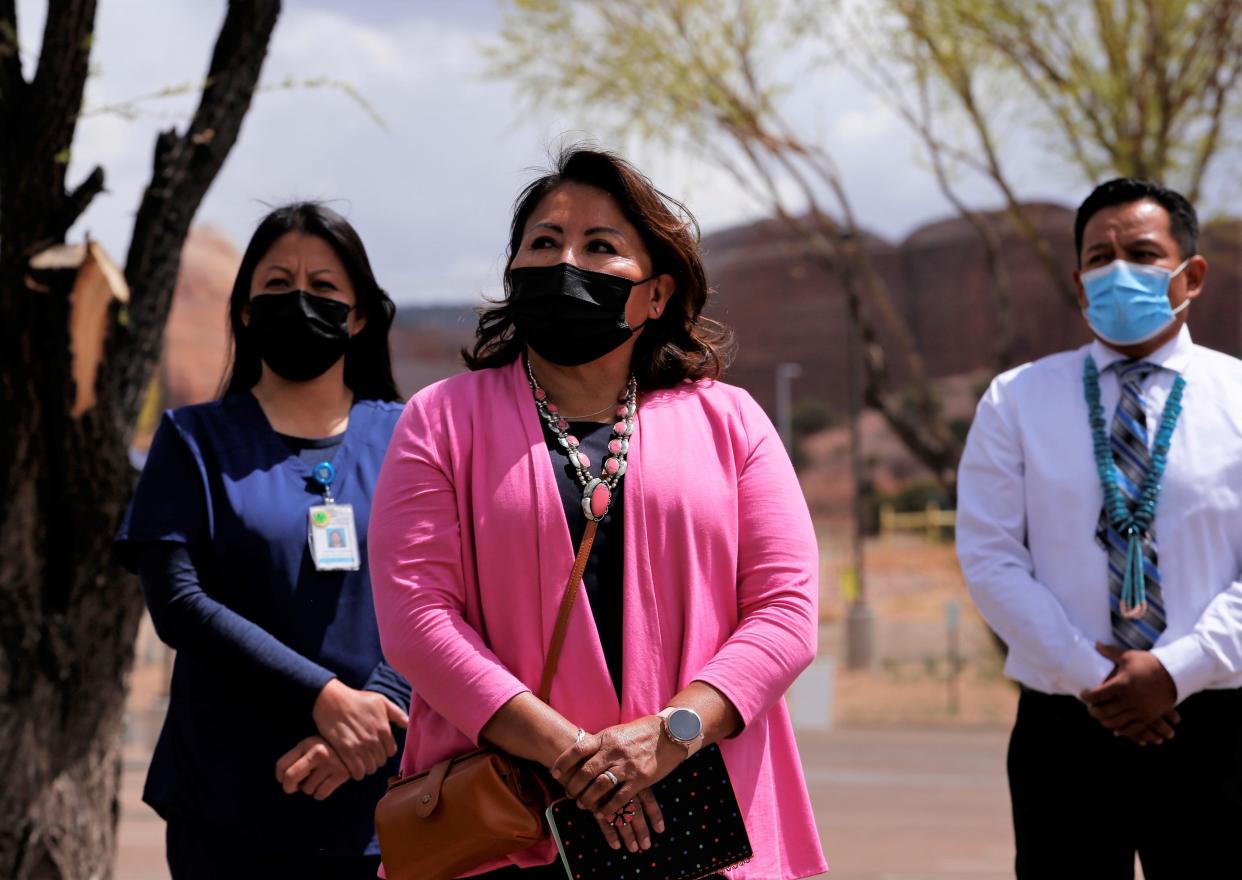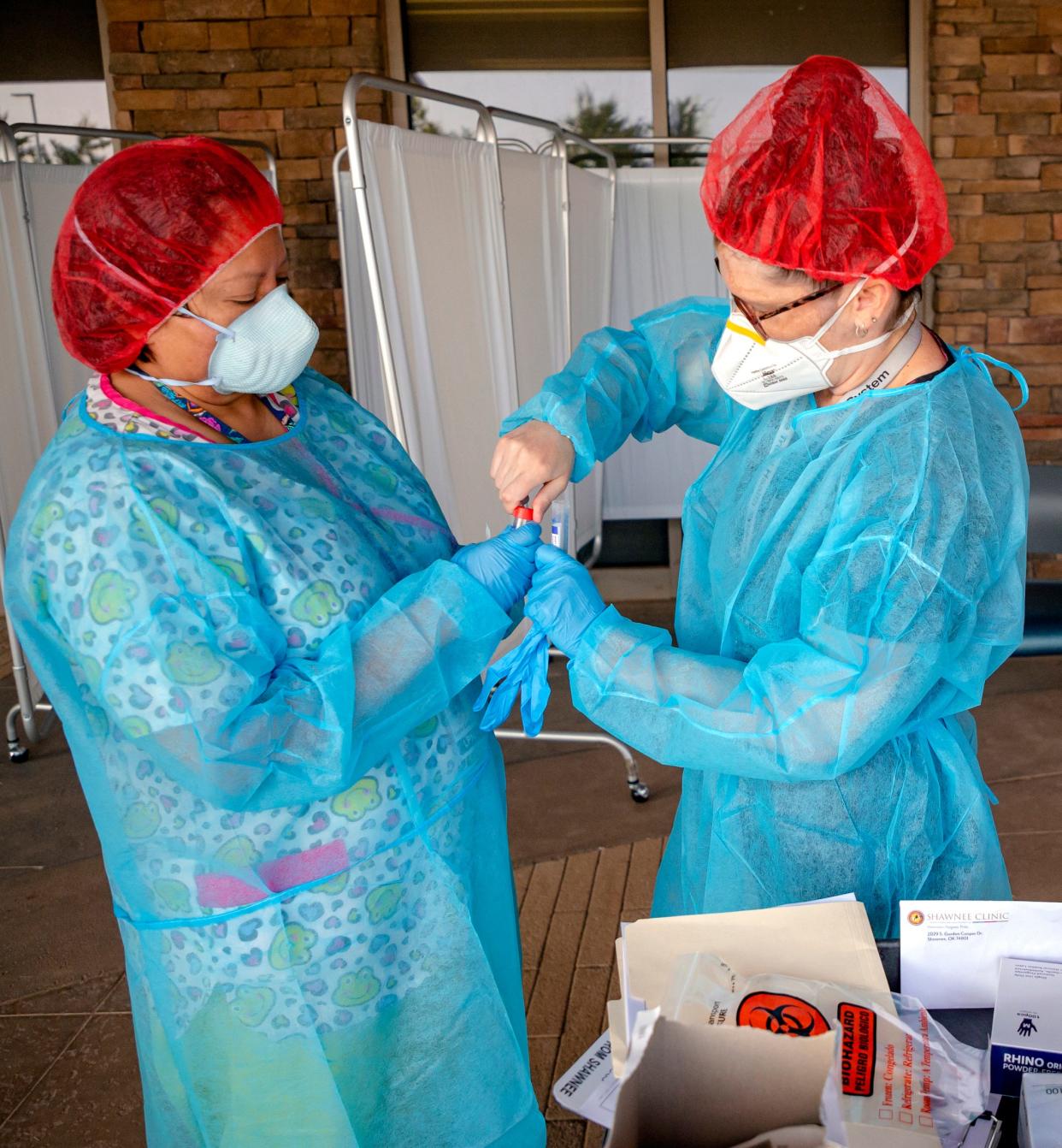After 609 days, the Indian Health Service has a new leader
In a long-awaited vote, the U.S. Senate on Wednesday confirmed President Joe Biden’s pick to lead the Indian Health Service. The health care provider for 2.6 million Native Americans had not had a permanent leader in the 20 months since Biden took office.
Roselyn Tso takes over as IHS director after leading the agency’s operations on her own Navajo Nation.
During her confirmation hearing in May, Tso pledged to prioritize patient safety, worker retention, and technology upgrades at aging clinics and hospitals.

IHS was set up to begin meeting the federal government’s treaty obligations to tribal nations. But Tso will be inheriting a system that has persistently failed to keep up with actual needs, a problem that was escalated by the COVID-19 pandemic.
Life expectancy for Native people fell by more than six years from 2019 to 2021, the biggest drop found by the U.S. Centers for Disease Control and Prevention. It’s now 65 years old. The U.S. average is 76.
Leaders hope confirmation of Roselyn Tso boosts funding, services for Indigenous Americans
Tso’s confirmation will give tribal nations a central voice in the Biden administration to tackle pressing health issues, such as high rates of diabetes and cancer, Indigenous leaders and advocates said.
“Ms. Tso was born and raised on the Navajo Nation and understands the health care needs that many first people of this country deal with,” Navajo Nation President Jonathan Nez said in a statement. “Her work ethic, value system and approach to problem solving demonstrates the resilience of Indigenous peoples and the commitment to combat the systemic inequities that impact tribal nations.”
Does the Osage reservation exist? Question isn’t settled after McGirt
In addition to operating its own hospitals and clinics, IHS funds health care facilities run by tribes and urban Native groups. It is an arm of the Department of Health and Human Services, with its own 15,000 employees and a $6.6 billion budget that falls far below what tribal leaders say is necessary.
Biden chose Tso to become its next director in March as he faced increasing pressure to fill the office. Tso’s Trump-era predecessor resigned in January 2021. Longtime IHS staffer Elizabeth Fowler, a Comanche Nation citizen, served as acting director in the interim.

Can Tulsa fine Native Americans for speeding? Federal appeal raises new questions
Without a full-time IHS leader, tribal nations and other Native health care providers struggled to raise and address the issues they were facing amid the pandemic, the National Council of Urban Indian Health said in a statement.
Having Biden’s permanent pick in office will push forward the president’s agenda on working with tribal leaders to improve health care outcomes, said Stacy Bohlen, chief executive of the National Indian Health Board based in Washington, D.C.
Biden asked Congress last year to significantly increase IHS funding. But the proposal was ultimately slashed to $400 million, an amount that experts said would cover inflation, not transformation.
2022 elections: Behind the Choctaw Nation's new PAC
Bohlen said tribal leaders will look to Tso to press Congress for more money each year and to secure mandatory funding for IHS. That contrasts with the current practice of annual appropriations, where Congress doles out IHS spending as part of huge budget bills. When those bills stall, so does the money tribal clinics need to pay employees and suppliers, Bohlen said. As a result, it’s difficult to keep and hire employees.
“In the Indian Health System, we simply can’t afford that kind of vulnerability,” said Bohlen, who belongs to the Sault Ste. Marie Tribe of Chippewa Indians in Michigan.
Her board is hosting its yearly tribal health conference starting Monday, which is expected to draw hundreds of tribal leaders and health care providers to Washington, D.C. They’ve carved out an entire day to meet with members of Congress. A consistent funding stream for IHS will be their No. 1 ask.
“We’re doing everything we can and just hope that we will prevail,” Bohlen said.
Molly Young covers Indigenous affairs for the USA Today Network's Sunbelt Region. Reach her at mollyyoung@gannett.com or 405-347-3534.
This article originally appeared on Oklahoman: Roselyn Tso confirmed as IHS director after 20-month delay
